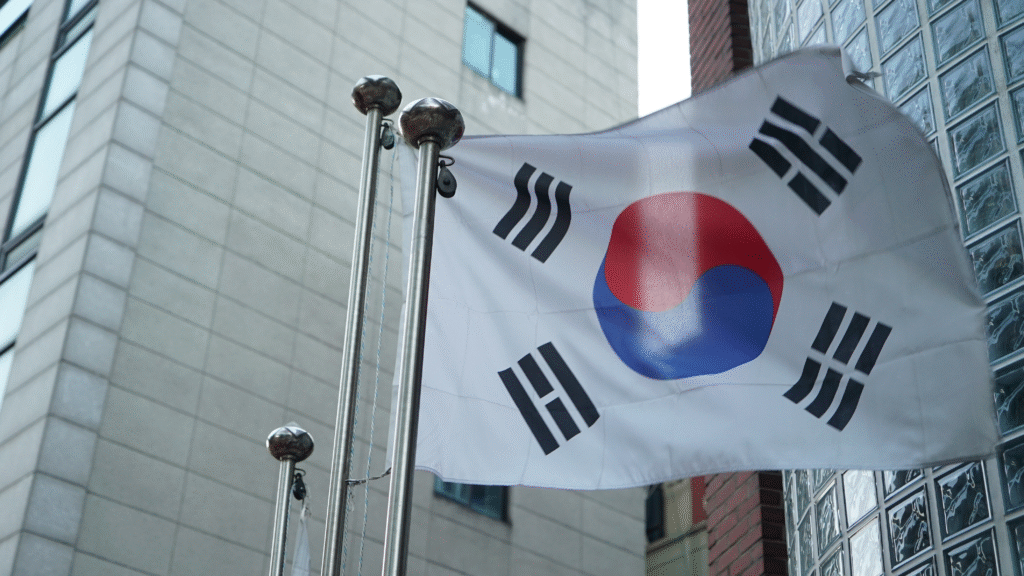

The neck-and-neck presidential election race was ended by Yoon Seok-youl of the People Power Party, the major conservative party of South Korea. Yoon won the election by the narrowest margin ever – by 0.73 percentage points. Until his inauguration in early May, the Presidential Transition Committee (“the Committee”) will develop policy directions and a blueprint for the new governance structure. While the digital policies of the new administration are far from being crystalized, given the election pledges and the appointment of Ahn Cheol-Soo, People’s Party Chairman, as the head of the Committee, Yoon will strive to award South Korea a leading role in the digital economy. The 3Cs – Continuity, Change, and Challenge – encompass how the new administration would pursue such goal.
Continuity: Science and ICT
The Yoon administration will continue the current administration’s efforts to strengthen South Korea’s competitiveness in the science and ICT sectors. During the next five years of Yoon’s presidency, policy directions are most likely to support the development of advanced science, technology, and ICT infrastructure and support emerging industries and digital transformation. The leader of the Committee, Ahn Cheol-soo, who merged with Yoon at the very end of the election race, is expected to prioritise such issues among countless other critical policy areas South Korea is facing. His background in software and medical industry led him to pinpoint sectors inducing the fourth industrial revolution as the fundamental ground for South Korea’s trail of growth. Ahn’s background and beliefs, along with Yoon’s election pledges would merge into the national roadmap for science and ICT.
Like the current administration’s Digital New Deal’s focus on data, AI, and network, the upcoming administration will support the ICT infrastructure and emerging digital industry with expanding R&D and tax incentives. Yoon’s election pledge targeted various sectors including semiconductor, AI, biotechnology, cloud computing, and metaverse. Highly advanced digital infrastructure will be achieved by promoting the smooth nationwide 5G network deployment and leading 6G technology standardisation. This will support the growth of emerging industries and so-called “mega-tech” industries identified in Yoon’s election pledge. Given the extensiveness of the identified industries, from digital healthcare and public cloud to the metaverse, the Committee shall carefully choose into which sectors to allocate its limited resources.
Changes: Innovative Industry, Regulation and Governance
Among the identified key industries, the major new focus of the upcoming administration is virtual assets. Yoon promised to promote the virtual asset industry by establishing an Initial Exchange Offering and allowing Initial Coin Offering. In addition, he devised a plan to support adopting new technologies like block chain more extensively in the finance sector. The new administration’s potential support for virtual assets relates to its vision of leading the global metaverse industry. The expected deregulatory tendency of a virtual asset market is only part of his promise to relax regulation for businesses in general.
Other than increasing R&D and tax incentives, Yoon believes that taking regulatory pressure off businesses can support Korea’s mission to lead the digital economy. His election pledge underlines regulatory innovation, referring to the minimal regulation applied by authorities and voluntary regulation by businesses. The private sector is looking out for a regulatory sandbox for emerging industries and a distinct organisation in charge of evaluating existing and new regulatory measures to limit excessive regulations. While various authorities are clashing on who and how to regulate digital platforms, Yoon emphasizes the importance of avoiding unnecessary regulations to support innovation. While he made few concerning comments against this principle, Yoon remains the better option for platform operators compared to the liberal candidate Lee Jae-myung, who argued for regulatory tightening.
The new administration comes with a new governance structure, and the election pledge outlines several government bodies for science and technology. While Ahn suggested re-establishing the deputy prime minister position to command science and technology policies, Yoon put forward a Presidential Council on Science and Technology to assume such role. How the Committee will settle the structure of the control tower and how different the potential council will be from President Moon’s Advisory Council on Science and Technology shall be monitored. The same applies to the so-called “Aerospace Agency” and “Media Innovation Council”, respectively overseeing space and media policies. The OTT industry stakeholders are cautiously hoping that the Media Innovation Council will end another on-going struggle by various ministries on OTT regulation.
Challenges: Priority Evaluation and Opposition Party-Majority
The continuity and changes for the next five years depend on how the Committee evaluates policy priorities and the new administration’s co-living with the opposition party-majority National Assembly. If all the election pledges can be realised, there would be nothing stopping South Korea from becoming the leading digital economy in the world. However, not all of them can be envisioned. The Committee and, more specifically, experts invited to join the Science, Technology, and Education Division of the Committee will provide answers to which pledge will be prioritised, the new governance structure, the policy direction, and specific terms for Korea’s path for the leading digital economy. Another difficult challenge is to manage Democratic Party-majority in the National Assembly to implement all the rosy science and ICT policies. The Yoon administration’s statecraft and the plan for digital Korea may be and will be endangered ruthlessly without bipartisan support.
Access Partnership is closely monitoring developments regarding the incoming South Korean administration. For more information on this matter, please contact Minjoo Jang at [email protected].
Subscribe to our news alerts here.